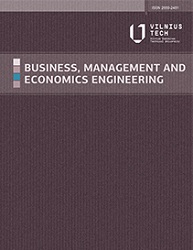Further education, its methods and selected characteristics of organisations: an empirical study of their association with organisations profitability
Further education, its methods and selected characteristics of organisations: an empirical study of their association with organisations profitability
Author(s): Pavel Pudil, Petr Somol, Irena Mikova, Vladimir Pribyl, Lenka KomárkováSubject(s): Business Economy / Management, Micro-Economics, Adult Education, Human Resources in Economy
Published by: Vilnius Gediminas Technical University
Keywords: further education and training; lifelong education; methods of education; organisations’ profitability; human resource management;
Summary/Abstract: Purpose – The paper presents the results of the study based on a sample of 358 organisations that focuses on further education and training (FET) of their employees. It specifically investigates which specific educational methods and various characteristics of organisations are associated with their financial performance. Research methodology – The Dependency Aware Feature (DAF) selection method from statistical pattern recognition has been used to identify which of the 37 considered variables are most associated with the profitability indicators (ROA, ROCE, ROS). Findings – The profitability indices are significantly associated with some of the specific methods of FET. Organisations should pay attention particularly to instructing, coaching and mentoring. The results also confirm the importance of talent management for organisations to be successful. Research limitations – The examined sample consists solely of organisations operating in the Czech Republic. Shortly, we plan to extend the selection by including organisations from abroad. Practical implications – The study provides recommendations for HR managers for the goals they should focus on. Organisations should evaluate the impacts of FET; otherwise increasing investments in it may not have an effect. Originality/Value – The originality of the current study lies in using a new methodology based on machine learning and respecting complex mutual relations among variables.
Journal: Business, Management and Economics Engineering
- Issue Year: 19/2021
- Issue No: 1
- Page Range: 111-130
- Page Count: 20
- Language: English

